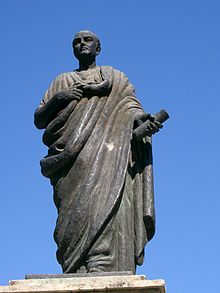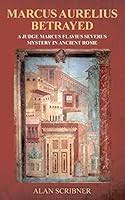Anni Ultimi (2011) by Allan Scribner and Douglas Marshall, eds.
Good Reads meta-data is 181 pages, rated 3.89 by 18 litizens.
The book consists of the two editors’ introduction and commentary on Seneca (4BCE – 65AD) the Roman Stoic thinker, imperial advisor, speech writer, exile, essayist, satirist, together with a selection of Seneca’s letters concerning old age, retirement, and death. Born from Seneca the Elder in Cordoba Spain where I once saw a statue of him, he lived most of his adult life in Rome.

Seneca knew how to talk a good game: the letters selected are replete with insights, pearls of wisdom, and sound reasoning. Seneca sees nothing to fear in death since it extinguishes consciousness just as we were before birth. We knew no pain, suffering, or fear before we were born, so there will be none in death.
Old age has its infirmities, and if we dwell on them, they are magnified. Ergo, best to soldier on as though on campaign. (Truly the voice of a man who was never a soldier.)
Retirement signals a state of equilibrium. One is no longer striving for things. Ergo, now one wants nothing. (Was his retirement funded by a defined benefits superannuation scheme as mine is?) Each day of life is a celebration of the senses. In retirement keep learning, observe the world around, appreciate the skills of others, and put things in perspective.
This is the same Seneca who was complicit is several of Nero’s murders, like that of his mother Agrippinna, nor did Seneca scruple to amass enormous wealth during Nero’s reign.
If anyone wonders about the connection between this person and the Great Hill People of Western New York, there is none. The Dutch called then Sinnekars and when the English arrived that became Seneca. So says Wikipedia.

Scribner has published a series of krimis set in the Rome of Marcus Aurelisius and I have read at least one with satisfaction.

